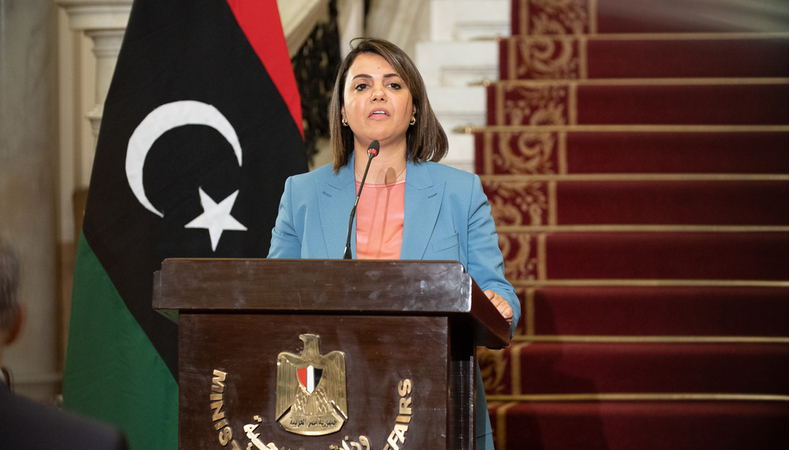Tensions rise in the East Mediterranean


The Presidential Council states that Ms. Najla Al-Mangoush is suspended from work as a precautionary measure as part of the investigation into administrative violations attributed to her, represented by her monopolizing Libya’s foreign policy agenda without coordination with the Presidential Council. The decision adds that she is banned from traveling abroad until the investigation concludes and its result is presented to the Presidential Council.
In addition, an investigative commission will be formed, led by Vice-President Abdullah Hussein Al-Lafi and members Adel Muhammad Sultan and Ahmed Jumaa Aqoub, which will have to present the investigation results within fourteen days from the same decision.
Although the decision indicates “administrative violations” and “monopoly of foreign policies” as the reasons for the minister suspension, local media noted that the decision follows Al-Mangoush’s statements about the willingness of her country to cooperate with the US regarding the surrender of a former Libyan intelligence officer, Abdel Basset Al-Megrahi, suspected of having participated in the 1988 Lockerbie massacre. As a result, many parties accused the foreign minister of “working against Libya’s interests.”
On the other hand, Al-Mangoush denied ever saying that the man wanted to question the Lockerbie crisis could be released or interrogated, as some Li, with its lack of respect for international law, has transformed the Eastern Mediterranean as a space of tensions. Italy meanwhile has also been taking part in exercises with Turkey and it has called for stronger cooperation and dialogue. Germany has been trying to cool the air between the two historic rivals. Its foreign minister visited both Athens and Ankara in an effort to get them both back to the negotiation table.
Greece has said that it will defend its sovereignty as well as Europe’s sovereign rights against Turkey’s unlawful acts, escalations and provocations. It said it was ready for dialogue but not under threats. Turkey has also announced that it is willing to talk but only if there are no preconditions.
German efforts to bring about a reconciliation had already failed once in July when explorations were temporarily halted. But Turkey restarted them when talks failed after Greece signed a demarcation agreement with Egypt.
The dispute between Turkey, Greece and Cyprus is an old one but the discovery of the offshore reserves has added a new dimension to it over the past five years. It has now become a battleground with the convergence of larger fault lines involving the EU, North Africa and the Middle East. Cyprus’ territory is also under dispute because a part of the island is claimed by Turkey, an assertion that is not recognised by any other country or international body.
With Cyprus granting drilling rights to other companies, Turkey says this violates the rights of Turkish Republic of Nothern Cyprus. An estimated 1.7 billion barrels of recoverable oil and 122 trillion cubic feet of gas stands between these countries that are inching close to conflict. There has already been an accident involving a Greek and Turkish warship where the Turkish side took some damage. Another incident like that might just touch off something worse than a war of words.




